#regulation
Slammed by the NTSB, Uber Now Promises to Make Autonomous Test Data Available to Public
Uber Technologies promised to make the safety information related to its self-driving program more widely available following some fairly harsh criticism from the National Transportation Safety Board (NTSB).
The agency had faulted Uber with some amount of responsibility after conducting its investigation into the fatal testing accident that took place in March of 2018. The incident, which took place in Tempe, AZ, involved an inattentive Uber safety operator who struck and killed a pedestrian who was attempting to cross a poorly lit roadway — creating a national backlash against self-driving vehicles and a push toward ensuring higher levels of safety.
Police say the vehicle was operating autonomously for testing purposes at the time of the collision. Following months of investigation, the NTSB decided in 2019 that driver failed to act in a safe manner due to being distracted by their cellphone. Uber was also faulted for possessing inadequate safety risk assessment procedures, ineffective oversight of vehicle operators, and a general absence of mechanisms to address complacency by operators as the cars drove themselves.
Former Audi Managers Indicted in Dieselgate Case
On Thursday, Munich-based prosecutors announced the indictment of four more ex-Audi managers in relation to Volkswagen Group’s infamous diesel emission scandal. This follows the charges brought against former CEO Rupert Stadler and a handful of Audi staffers in 2018.
The latest indictment involves three former board members and one department head who has since retired. Prosecutors stated the alleged crimes relate to 434,420 cars manufactured by VW Group brands which we already know where sold with trick software designed to circumvent emissions testing, according to Reuters and German outlet Handelsblatt. However, the grand total of vehicles suspected to be in violation of regulatory law are suggested to be closer to 11 million globally.
Volkswagen's Dieselgate Concludes in the U.S.
Volkswagen Group appears to have completed the terms laid out by the U.S. Department of Justice after it decided the automaker required some oversight in the wake of the 2015 emissions fiasco (colloquially known as Dieselgate). VW was found guilty of equipping certain models with emissions-cheating software that would allow the car to run cleaner under testing conditions (passing regulations) and dirtier, with better performance, the rest of the time.
The con was brilliant and allowed VW to fool regulators for years until it all blew up in its face. Getting caught in the United States kicked off a chain reaction that cost the automaker a fortune globally. In May, VW estimated it had spent €31.3 billion ($34.40 billion USD) in fines and settlements and fines globally — adding that it expects to bleed another €4.1 billion through 2021. But the company was certainly happy to announce on Monday that it had adhered to settlement deal it reached with the Department of Justice and California’s Attorney General.
Silver and Gold: Nevada Joins California in the Gas War
On Monday, Nevada Governor Steve Sisolak announced that his state will embrace California-crafted emissions rules that are at odds with the national rollback finalized by the Trump administration in March.
Officially, Sisolak said the rules would not require residents to abandon their current ride “or choose one that does not work for their lifestyle or business needs.” Nevada has, however, decided to adopt higher mpg standards, as well as the Golden State’s zero-emission vehicle (ZEV) rules that require manufacturers to sell a certain number of electric or plug-in hybrid models each year based on the total number of vehicles sold within the state.
Companies in compliance accrue ZEV credits, which can then be traded or sold to other manufacturers for money. As with the Corporate Average Fuel Economy (CAFE) system, those that cannot hit their targets (or afford to buy up credits) will be fined. Tesla actually used such arrangements to make $594 million off its rivals in 2019, with the prospect of things only getting more lucrative for the all-electric brand.
NHTSA Readies New Voluntary Autonomous Driving Database
The National Highway Traffic Safety Administration (NHTSA) plans to release new guidance for automakers to make autonomous testing data available to the public. As you are no doubt aware, the concept of self-driving cars is losing steam. The industry finds itself confronting hurdles it never could have anticipated, slowing progress, while high-profile mishaps have shaken the public’s faith.
While polling has hardly been consistent (and often conducted by actors who frame the questions to get a desired answer), reputable outlets have shown us that public acceptance of self-driving cars declined over the past few years. The NHTSA would like to offset this by allowing regular folks to more easily track the industry’s progress, while encouraging a bit of competition among companies as they compare themselves to each other in a new database.
FCA, PSA to Be Probed Deeply Ahead of Merger
Executives from Fiat Chrysler Automobiles (FCA) and PSA Group are reportedly concerned that their companies are in for an extensive probing by the European Commission before their planned merger can take place. Ideally, the duo have said they want to finalize the deal early in 2021, but the prolonged investigative dive may force them to readjust that timeline.
The European Union has historically been a big fan of antitrust investigations and often tries to predict future business actions to address how newly formed organizations might impact the market overall. It’ll be a difficult task, what with automotive sales suppressed by coronavirus lockdowns and the global economy looking particularly grim.
Few are under the impression that the merger will be blocked, however.
IIHS Denounces Concept of Total Safety From Autonomous Cars
When the United States began passing legislation allowing automakers to begin testing self-driving vehicles on public roads, it was framed almost entirely as a safety issue. Proponents claimed that the only way to eliminate roadway fatalities was to take the human brain out of the equation and let cars drive themselves. Having enacted a similar no-thinking policy themselves, legislators agreed — pleased to have ensured a death-free future on little more than empty corporate promises.
At the time, we were still complaining about the unreliable nature of advanced driving aids, and how such systems seem custom-made to dull your reflexes behind the wheel. There was a sense that, if everything went perfectly, maybe autonomous vehicles (AVs) could reduce accidents by previously unheard of levels. That feeling didn’t last particularly long here at TTAC and, by 2018, we started noticing we weren’t alone.
The Insurance Institute for Highway Safety (IIHS) grew increasingly critical of AVs starting a couple of years ago. On Thursday, it released a report claiming the idea of a no-crash future spurred by automation is a fantasy. Instead, the IIHS says cutting-edge technology will likely struggle to stop just a third of all accidents.
Gas War: States Sue Trump Administration Over Fuel Rollback
Following America’s fueling feud has shown your author that it’s less about finding a reasonable compromise that works for consumers, the automotive industry, and environmental activists, and more about perpetuating ideological wars that now seem to surround every topic filtered through the news media.
Encouraged by industry leaders just days after taking office, President Donald Trump made the fuel economy rollback one of his first initiatives. It wasn’t until March that the softened final draft emerged, however, and it won’t be enough to conclude the almost four-year battle. A collection of 23 states filed suit against the Trump administration’s easing of emissions standards on Wednesday. They argue that the rollback is illegal and based on bunk information.
While we’ve also been suspect of some of the metrics used to make the rollback look more desirable, fueling standards haven’t adhered to reality in some time. The Obama-era standards that would have seen Corporate Average Fuel Economy (CAFE) rise to 54 mpg by 2025 were deemed unsustainable by that administration’s Environmental Protection Agency (EPA) and the National Highway Traffic Safety Administration (NHTSA), but were put into play anyway.
California Greenlights Autonomous Delivery Vehicles for Public Roads
On Tuesday, self-driving startup Nuro received a permit from the State of California to commence testing on certain public roads. Issued by the state’s Department of Motor Vehicles, the document allows its fleet of driverless delivery bots to mingle with traffic.
On a national level, Nuro’s vehicles are technically illegal without a smidgen of government help. U.S. Federal Motor Vehicle Safety Standards mandate road-going automobiles have things like windshields, airbags, and mirrors. Meanwhile, Nuro’s small delivery units don’t even have space for a driver — requiring the Department of Transportation to make regulatory exemptions for the brand in February after debating the issue for over a year.
'Diesel Brothers' Fined $850,000 for Rolling Coal
The hosts of the Discovery Channel’s Diesel Brothers have been fined $851,451 for selling modified pickups that violate Utah law and the federally recognized Clean Air Act.
U.S. District Court Judge Robert Shelby also said the plaintiffs, Utah Physicians for a Healthy Environment, could submit their attorney fees for the defendants to pay. Cole Cannon, lawyer to the stars, has said the plaintiffs’ attorneys previously told the judge they were seeking $1.2 million.
Friday’s court documents stipulate that David “Heavy D” Sparks, Joshua Stuart, Keaton Hoskins, and “Diesel Dave” Kiley pay $761,451 to the U.S. government with the remaining $90,000 going to Davis County in Utah. The group has already been found guilty of removing particulate filters and exhaust recirculation systems on the cars used for the television program. The only genuine surprise was the sizable fine — as well as some court-appointed rules that will probably make the show less exciting to watch.
California's Data Privacy Laws Could Stymie Auto Industry's Long-term Plans
Pretty much anytime automotive data acquisition becomes the topic of discussion, we have to take time to mention customer protections and ask where the line for privacy should be drawn. With social media firms making a mint off the process online and automakers conducting major moves to likewise leverage personal data, it’s practically a nervous tic at this point.
Hoping to get out ahead of some of the potential problems arising from issue, California enacted new consumer protection laws that came into effect at the start of the year.
The California Consumer Privacy Act (CCPA) aims to give individuals greater control over the personal data being harvested. Most of this is supposed to be done by allowing consumers to request what kind of information is being collected, ask where it’s going, and the ability request that the subsequent sale or continued acquisition of personal data cease. However, CCPA contains provisions for customers to ask a company to delete all information it has stored on them, as well as rules prohibiting any discrimination related to a person exercising their privacy rights.
Frankly, it all sounds rather good to someone who prattles endlessly about data privacy rights, but it’s also causing problems for the automotive industry.
Ford: Future Performance Less About Numbers, More a State of Mind
Dave Pericak, former head of Ford Performance and now responsible for the brand’s icon models, told CNET on the sidelines of the Chicago Auto Show that evolving environmental regulations have forced the automaker to reassess how it views performance.
“A lot of countries are changing regulations so quickly, and so much, they’re almost forcing the performance products out,” he said.
“Our job is going to be two-fold,” Pericak continued. “One is to figure out how to continue to make performance that will exist in some of these regulated countries, even our own, and how do you do it so it’s a global offering?”
It’s a good question. Environmental regulations have indeed forced automakers to downsize displacement and re-familiarize themselves with turbocharging. Electrification is an option growing in popularity too, with many global automakers tossing battery packs into vehicles of all sizes at no small cost to themselves.
Something to Agree On: Everyone Wants More Autonomous Vehicle Legislation
While the United States has enacted some laws governing autonomous vehicles, the framework is pretty loose. Automakers have a cap on the number of test vehicles they’re allowed to field. They also have to get permission from the National Highway Traffic Safety Administration, but safety reporting is basically voluntary — and there’s plenty of conflict with existing safety standards.
A House Energy and Commerce subcommittee hearing held Tuesday sought to address the issue by gathering input from an array of sources, some of which had conflicting goals. And yet it appears that a consensus has miraculously been reached on Capitol Hill. All sides want more laws passed governing autonomous vehicles, albeit for various reasons. Consumer groups want assurances that AVs will remain safe and service as many people as possible; industry groups want a clearcut regulatory framework they can use to gradually shift test mules into products with more intellectual property protection and less red tape.
Gas War: Justice Department Drops Antitrust Probe Against Automakers Siding With California
The United States Department of Justice has ended its investigation into Ford, Honda, Volkswagen, and BMW over a presumed antitrust violation stemming from a deal they made with California to adhere to regional emission rules. Their agreement technically circumvents the current administration’s plan to freeze national emissions and fuel economy standards — established while President Obama was still in office — at 2021 levels through 2026. Under the California deal, the automakers promised to comply with pollution and gas mileage requirements that are more stringent than the federal standards suggested in the rollback proposal.
But the probe also looked like retaliation from the Trump administration against automakers publicly siding with the state causing the most trouble in the gas war. Under the deal, the automakers promised to comply with pollution and economy requirements that are tougher than proposed federal standards. Despite the corporate promise being as empty as an Oscar speech, it was still an affront to the current administration’s efforts to tamp down lofty efficiency targets put in place just days before it came into power.
While the Justice Department hasn’t explicitly said why it closed the investigation, it’s presumed that it simply didn’t find anything that it felt violated antitrust laws. California Governor Gavin Newsom said on Friday that he wasn’t surprised by the decision, stating that the “trumped-up charges were always a sham, a blatant attempt by the Trump administration to prevent more automakers from joining California and agreeing to stronger emissions standards.”
Driving Dystopia: License Plate Readers Are Becoming Increasingly Common
Policing a population is expensive. Law enforcement departments around the globe have long sought a way to tamp down costs or, more often, find better forms of supplemental revenue. Unfortunately, sending the SWAT team on a raid or hiring additional officers to patrol the highway for speeders costs money. But the price of surveillance technology continues to go down, encouraging agencies to tap into their rather robust capabilities — potentially at our expense.
China, the world leader in mass government surveillance, already has the ability to use its vast network of cameras to take over all manner of on-the-street policing. Electronic eyes are everywhere, often networked to facial recognition or plate identification technologies that enable authorities to mail you a ticket for speeding, jaywalking, or whatever else the patrolman failed to see you do in person. While some of the penalties stop at being publicly shamed via a national database or having your social credit score dropped (potentially barring you from some goods and services), these systems have also increased the number of finable offenses that make departments money.
While similar systems have been available in the United States, it seems the country’s penchant for liberty has drastically slowed their implementation. Yet it’s still happening, and there’s reason to suggest items like license plate readers and facial recognition software will soon become standard equipment for many (if not most) North American police departments.





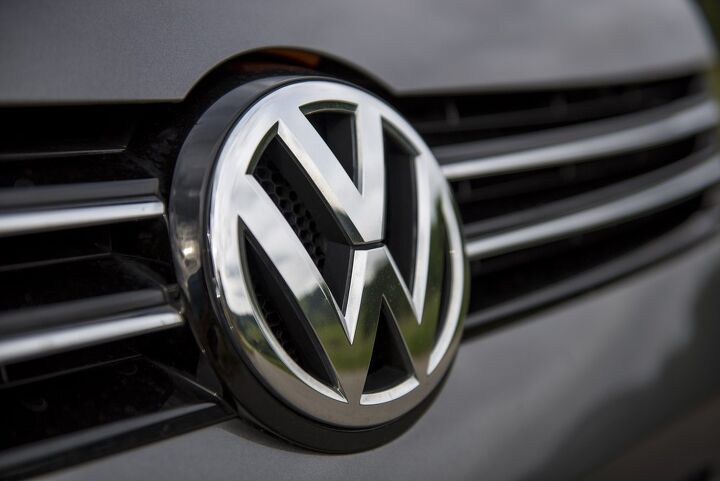




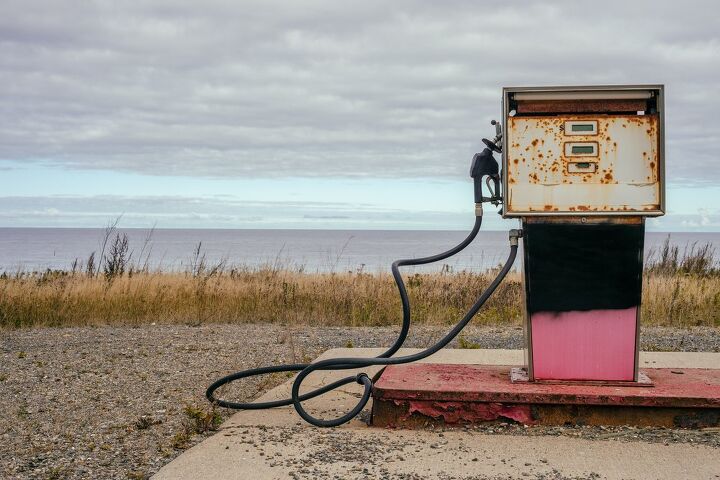

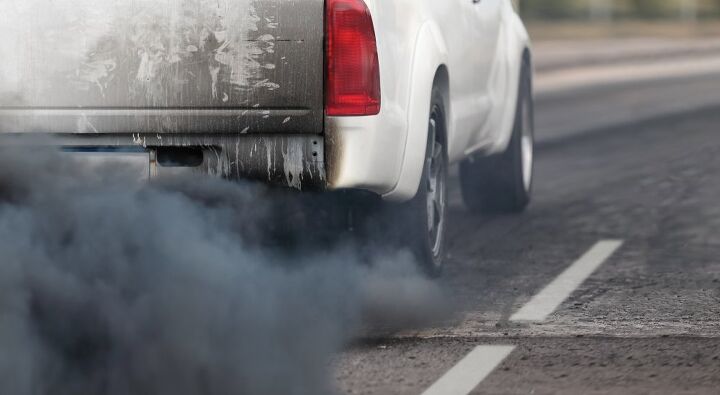
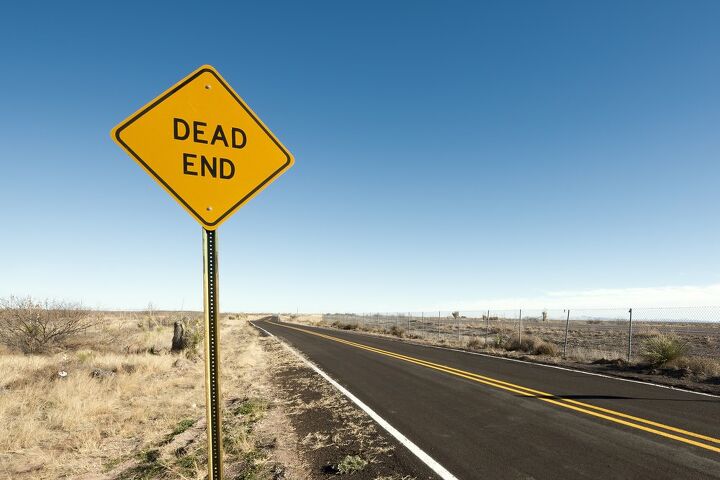

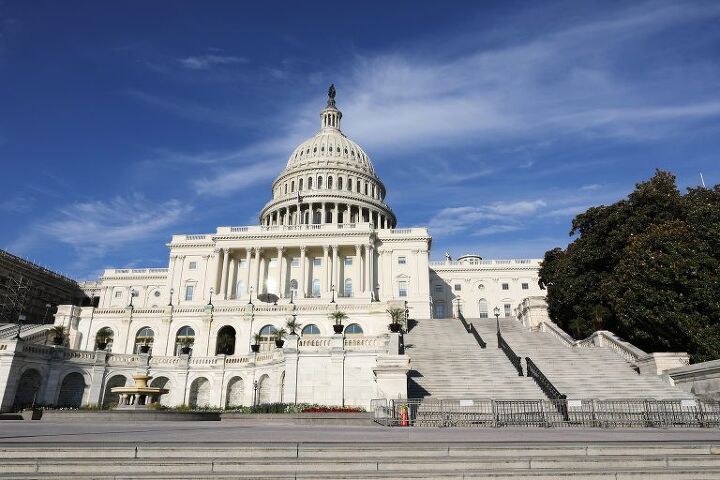














Recent Comments